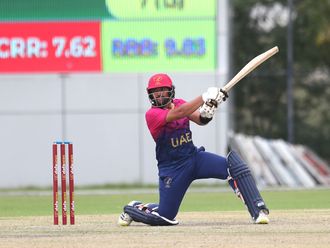Bangkok: The Thai Football Association have begun an investigation into claims that match fixers attempted to rig the result of November’s FA Cup final, local media reported on Tuesday.
Japanese official Yoshida Toshimitsu was in charge for Buriram United’s 2-1 win over Army United and reported to the Asian Football Confederation (AFC) that he was offered money to favour one of the two teams, the Nation and Bangkok Post said.
The allegation follows the fallout from the news earlier this month that a global football betting scam involving a Singapore-based syndicate had been responsible for match-fixing at least 380 games in Europe alone.
Thai FA president and Fifa executive committee member Worawi Makudi said that he would inform Fifa and Interpol, the international police organisation, of the allegations.
“We have already received the report the Japanese referee sent. I’ll discuss the incident with Fifa and AFC officials as well as with Interpol when I travel to Malaysia on Thursday for a seminar about the problem of match-fixing,” Worawi was quoted as saying by the Nation.
“We have already sent them all the relevant evidence we have about the game in question. However, we will also be discussing the issue at the association’s board meeting. We already have a committee to take care of the matter.”
Interpol and AFC will co-host a two-day conference against match-fixing and corruption in football in Kuala Lumpur on Wednesday.
Army United manager Col Worawut Withisiri said his side had nothing to do with the allegation.
“Military officers have discipline and we will never resort to ungentlemanly conduct,” he was quoted as saying by the Bangkok Post.
“Army chief Gen Prayuth Chan-ocha, as Army United chairman, has a clear policy that we must play entertaining football in a straightforward manner.”
Match-fixing in soccer has been rife throughout Asia with South Korea, Malaysia and China handing out bans after discoveries in recent years.
Last year, Fifa vice president Prince Ali Bin Al-Hussein told Reuters more investment was required to help tackle the huge problem of match fixing, especially in Asia.











